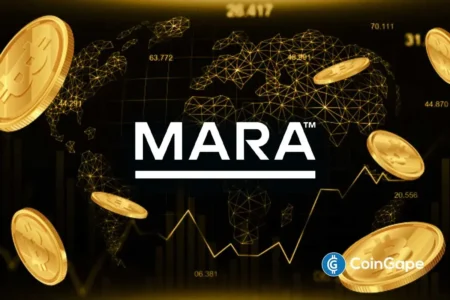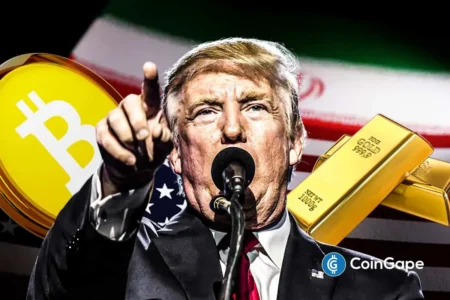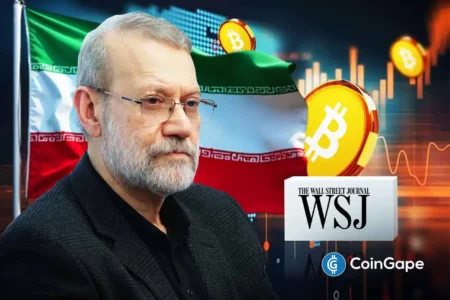Sweden Considers Bitcoin as a Reserve Asset amid Global Trends
Sweden is taking a significant step towards exploring the integration of Bitcoin (BTC) into its foreign currency reserves, aligning itself with an increasing number of nations evaluating digital assets as potential reserve currencies. This strategic initiative comes in light of a recent request made by Member of Parliament Rickard Nordin, who urged Finance Minister Elisabeth Svantesson to reassess the country’s approach to foreign exchange reserve management. In his proposal, Nordin emphasized the need to consider Bitcoin, referencing the actions of other countries that have begun to incorporate BTC into their financial strategies to diversify their portfolios. As global interest in Bitcoin continues to mount, Sweden finds itself at a crossroads between traditional financial practices and the burgeoning potential of cryptocurrency.
The idea of including Bitcoin within Sweden’s foreign exchange reserves is not just a scattered thought; it reflects broader trends seen globally in the realm of finance. Nordin highlighted El Salvador as a pioneering example of a nation that has adopted Bitcoin as legal tender, showcasing the transformative potential of cryptocurrency in state economies. This assertion is further supported by ongoing discussions among various central banks regarding the implications of Bitcoin on the global financial landscape. While Sweden is traditionally known for its cautious stance on crypto, the request from Nordin indicates a shift in thinking that may resonate with other nations looking to enhance their economic resilience through diversification.
Despite this budding optimism, the proposal arrives amidst an environment marked by skepticism towards cryptocurrencies within Sweden. In March 2024, the Governor of Riksbank, Erik Thedéen, conveyed concerns about Bitcoin’s extreme volatility and the inherent risks associated with digital currencies. His sentiments reflect a broader caution among financial authorities regarding the speculation surrounding cryptocurrencies. Thedéen stated that it may be prudent for Sweden to maintain minimal exposure to Bitcoin, considering its unpredictable nature. Yet, it is important to note that there are currently no regulatory barriers preventing the consideration of Bitcoin in the country’s foreign exchange reserves, which provides a window of opportunity for potential policy shifts.
The motivation behind countries exploring Bitcoin reserves spans beyond national curiosity; it is also influenced by significant political actions. Notably, US President Donald Trump has advocated for Bitcoin during his 2024 campaign, proposing to make America a global leader in cryptocurrency innovation. His endorsement has galvanized enthusiasm within the crypto community, precipitating discussions about the designation of Bitcoin as the US’s strategic reserve currency. The ramifications of this political posture extend globally, engendering a new wave of interest and experimentation with BTC among developed and developing nations alike.
The global financial scene has already seen several countries, including Switzerland, Poland, and Japan, exploring the integration of Bitcoin into their economic frameworks. Trump’s executive order in March 2025, which proposed establishing Bitcoin as a strategic reserve, has not only ignited hope among Bitcoin advocates but has also prompted other nations to reassess their stance on digital currencies. This embrace of Bitcoin as a reserve asset suggests an evolving landscape where cryptocurrency can play a vital role in monetary policy and economic stability. Countries like North Korea are also reportedly increasing their Bitcoin holdings, underscoring the complex, often contentious dynamics that come with the rise of cryptocurrency on a geopolitical scale.
As Sweden contemplates its position on Bitcoin, the potential for the cryptocurrency to become a legitimate component of its foreign exchange reserves is tantalizing. The discussions ignited by Nordin’s proposal reflect a growing recognition that traditional financial systems may need to adapt to contemporary economic realities. The inclusion of Bitcoin could serve to diversify Sweden’s reserves and enhance its ability to navigate the uncertainties of the global economy. Whether this path will materialize remains to be seen, but the discourse around Bitcoin integration into national reserves signifies a pivotal moment in the evolution of finance as nations grapple with the implications of digital currency in the 21st century.
In conclusion, Sweden’s consideration of Bitcoin as part of its foreign exchange reserves is a notable development reflecting broader global trends favoring cryptocurrency adoption. This movement reinforces the idea that the future of finance may very well embrace digital assets as legitimate and essential tools for economic stability. While Sweden’s cautious approach towards cryptocurrency highlights the challenges and risks associated with such transitions, the lack of regulatory restrictions presents an opening for future policy shifts. As the world watches, the dialogue surrounding Bitcoin will likely influence financial strategies not just in Sweden, but across nations aiming to reinvent their economic landscapes in an increasingly digital world.
















